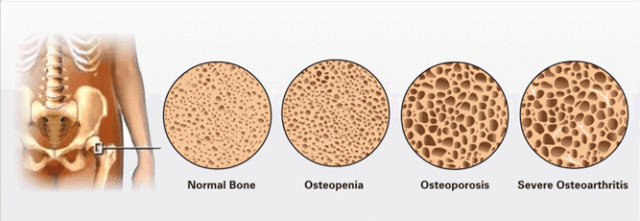What is osteopenia? And how does it differ to osteoporosis?
Osteopenia is not a disease, but a condition characterised by lower-than-normal bone mineral density (BMD). It represents an intermediate stage between healthy bone and osteoporosis, indicating that bones are weakening and there is an increased risk of fractures if preventive steps aren’t taken. While osteopenia can progress to osteoporosis, it is sometimes possible to slow, halt, or even partially reverse this process through lifestyle changes and appropriate management.
If you are diagnosed with osteopenia, it’s a sign that you should take proactive steps to support and protect your bone health. Your doctor will typically assess your calcium and vitamin D levels to ensure they are adequate, as both nutrients are crucial for maintaining strong bones. Additionally, regular weight-bearing and muscle-strengthening exercises will often be recommended to help improve bone density and overall strength.
Your Doctor will also evaluate any other risk factors that could be affecting your bone health, such as family history, medical conditions, or medications that may contribute to bone loss. Lifestyle modifications are an important part of managing osteopenia – this may include quitting smoking, limiting alcohol consumption, maintaining a balanced diet, and engaging in regular physical activity.
Early intervention at the stage of osteopenia can help prevent further bone loss and reduce the likelihood of progressing to osteoporosis, making it essential to work closely with your Doctor to develop a personalised bone health plan and live a bone healthy lifestyle.
Download the Fact Sheet: Osteopenia + Bone Health printable information

